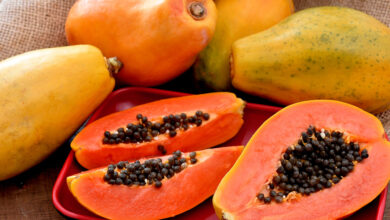
Tips for Live New Year's Diet Resolutions
DDHK.ORG - Diet is one of the resolutions of almost everyone when starting the new year. However, as repeated diet resolutions were echoed, so often did they fail to live up to those resolutions throughout the year.
Here are 5 tips for getting a diet resolution in the new year 2021.
First, eat a variety of foods
Here are some tips for ensuring a balanced diet:
- Try to consume a mixture of staple foods such as wheat, corn, rice, and potatoes with nuts, fruit, fresh vegetables, and foods from animal sources such as meat, fish, eggs, and milk.
- Choose foods rich in fiber such as whole grains, oats, and brown rice to help you feel fuller longer.
- For snacks, choose raw vegetables, unsalted nuts, and fresh fruit over foods high in sugar, fat, or salt.
Secondly,, reduce salt
Too much salt can raise blood pressure, which is a major risk factor for heart disease and stroke.
Please note, the limit for salt consumption recommended by the World Health Organization is 5 grams, or the equivalent of one teaspoon, a day. Here are some tips for reducing your salt intake:
- When cooking and preparing food, use less salt and reduce the use of sauces and salty seasonings (such as soy sauce, stock, or fish sauce).
- Avoid snacks that are high in salt, and try to choose healthy fresh snacks over processed foods.
- When using canned or dried vegetables, nuts, and fruit, choose the type without added salt and sugar.
- Remove salt and salty seasonings from the table and try to avoid adding them.
- Check labels on foods and choose products with a lower sodium content.
Third, reduce the use of certain fats and oils
Eating too much fat can increase your risk of obesity, heart disease and stroke.
Here are some tips for reducing fat consumption:
- Replace oil or butter with healthier oils, such as soy, canola, corn, safflower, and sunflower.
- Choose white meats like poultry and fish which are generally lower in fat than red meat, reduce meat that looks fatty, and limit consumption of processed meats.
- Try steaming or boiling food rather than frying it while cooking.
- Check labels and always avoid all processed, fast food, and fried foods that contain trans fats. It is often found in margarine, as well as packaged, fast food, baked goods and fried snacks.
Fourth, limit sugar intake
Too much sugar is not only bad for our teeth, it also increases the risk of unhealthy weight gain and obesity, which can lead to serious chronic health problems.
Here are some tips for reducing sugar intake:
- Limit your intake of sugary foods and drinks such as soft drinks, fruit juices and juices, flavored water, energy and sports drinks, ready-to-drink tea and coffee, and flavored milk drinks.
- Choose healthy fresh snacks over processed foods.
- Avoid giving sweet foods to children. Salt and sugar should not be added to complementary foods given to children under 2 years of age, and must be restricted beyond that age.
Fifth, avoid alcohol consumption
Overall, drinking too much, or too often, increases the risk of immediate injury, as well as causing long-term effects such as liver damage, cancer, heart disease, and mental illness. [Source: CNN Indonesia from WHO]



